She was 19 when she murdered a grocer and his wife
Manson Family murderer Leslie Van Houten spent 53 years in prison for her part in the murder of a California grocer and his wife.
And when she was released from prison in 2023, she faced quite the consequence.
Aged 19 at the time of the killings, she was a member of Charles Manson’s infamous Manson Family cult and the youngest of them to be convicted of murder.
Van Houten was serving a life sentence for the two murders with five bids for her parole blocked by governors before the decision was later reversed and she was released at the age of 73.
Recreating death row inmate's last meal
In a number of parole hearings, she expressed her regret for both her part in the killings and her association with Manson.
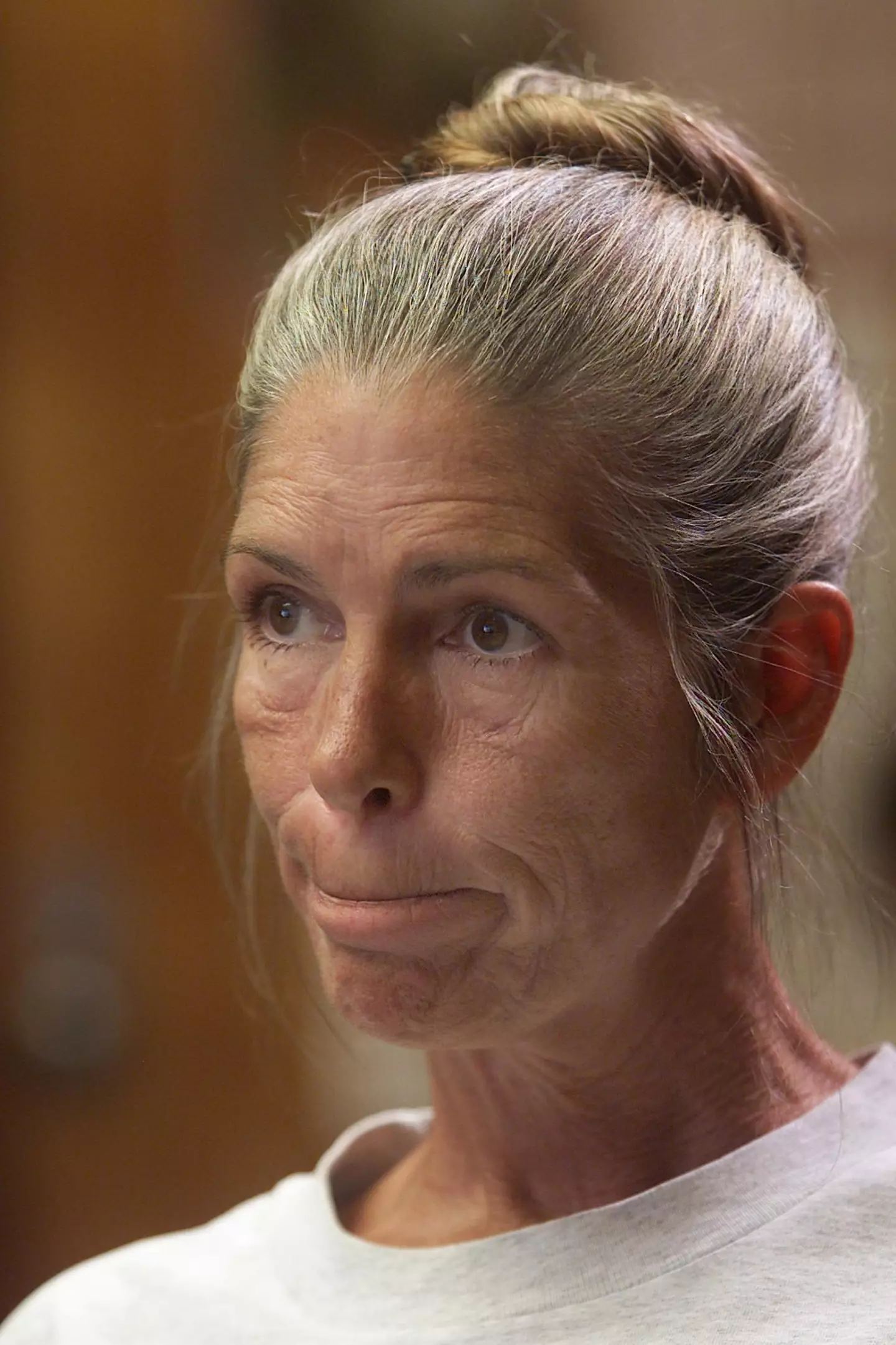

Van Houten during a 2002 parole hearing (DAMIAN DOVARGANES/AFP via Getty Images)
Explaining how she let him overpower her ‘individual thinking’, she said in 2002: "I bought into it lock, stock and barrel. I took it at face value.”
Manson was convicted of nine murders in 1971, including the 1969 killing of Sharon Tate, who was pregnant at the time.
Just days after her murder, Van Houten joined cult followers in killing grocer Leno LaBianca and his wife Rosemary.
She held the woman down while another member stabbed her, admitting she stabbed her after she was dead.
When the 2020 rejection of her parole by Governor of California Gavin Newsom was reversed by a state appeals court, he said he would not fight the ruling granting her parole, but made it clear he was disappointed at her release.
And while it wasn’t exactly a match for being in prison, there was a consequence Van Houten had to face when she was released – the world she once knew had completely changed.
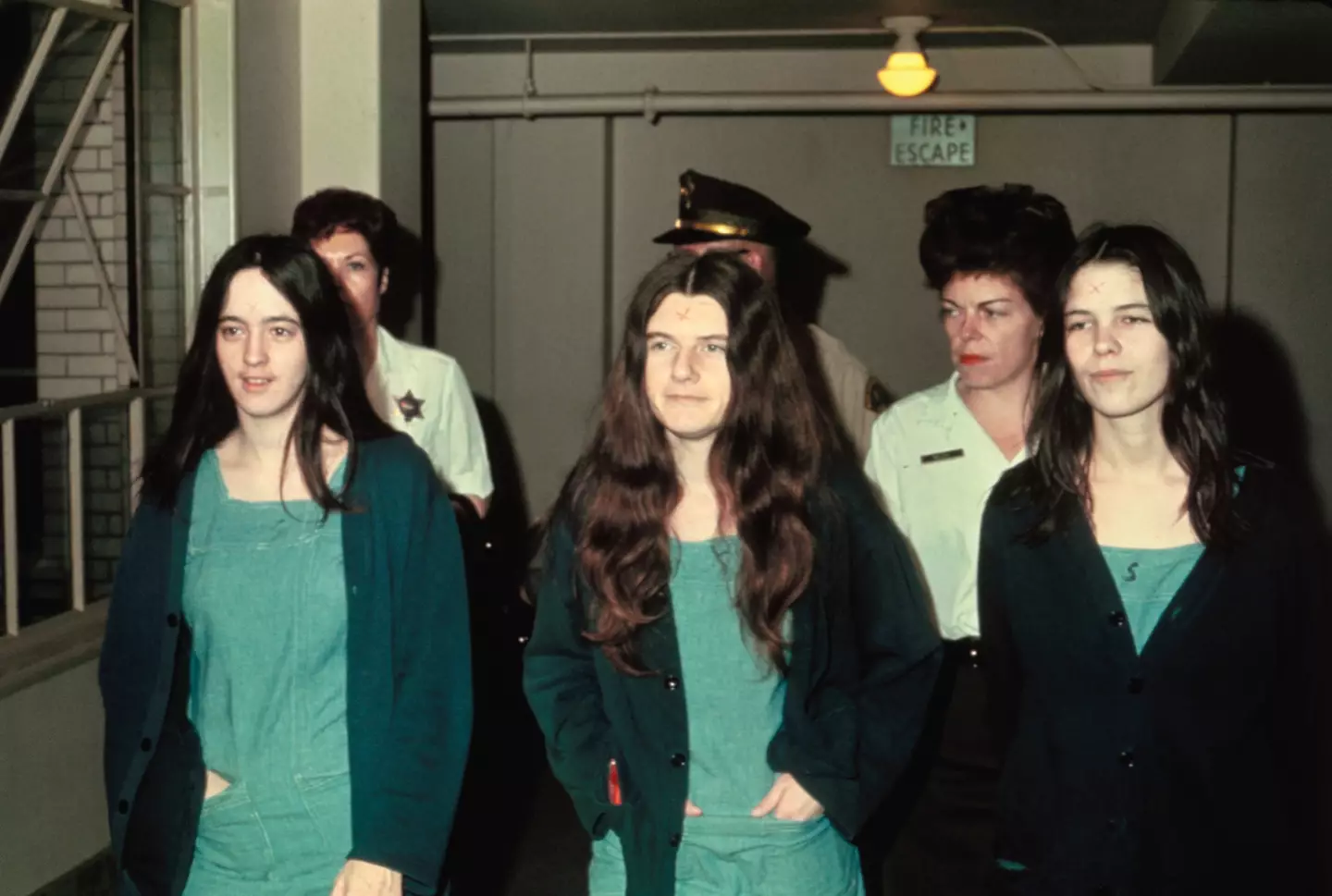

Manson Family murderers Susan Atkins, Patricia Krenwinkel and Leslie van Houton (Bettman/Getty Images)
She was transferred to spent about a year at a halfway house as her lawyer said the former cult member would need to learn how to navigate a whole new reality.
Her attorney Nancy Tetreault explained: “She has to learn to use the internet. She has to learn to buy things without cash.
“It's a very different world than when she went in."
The lawyer added at the time that Van Houten was ‘still trying to get used to the idea that this is real’.
While she served her sentence, Tetreault said the murderer ‘had a long job of detaching herself from the cult mentality and accepting responsibility’.
“It took her a long time. She had decades of therapy. So she felt guilt and deep remorse,” Tetreault added to the BBC.
Featured Image Credit: KTLA 5
Topics: Crime, US News, Prison
 Jess Battison
Jess Battison
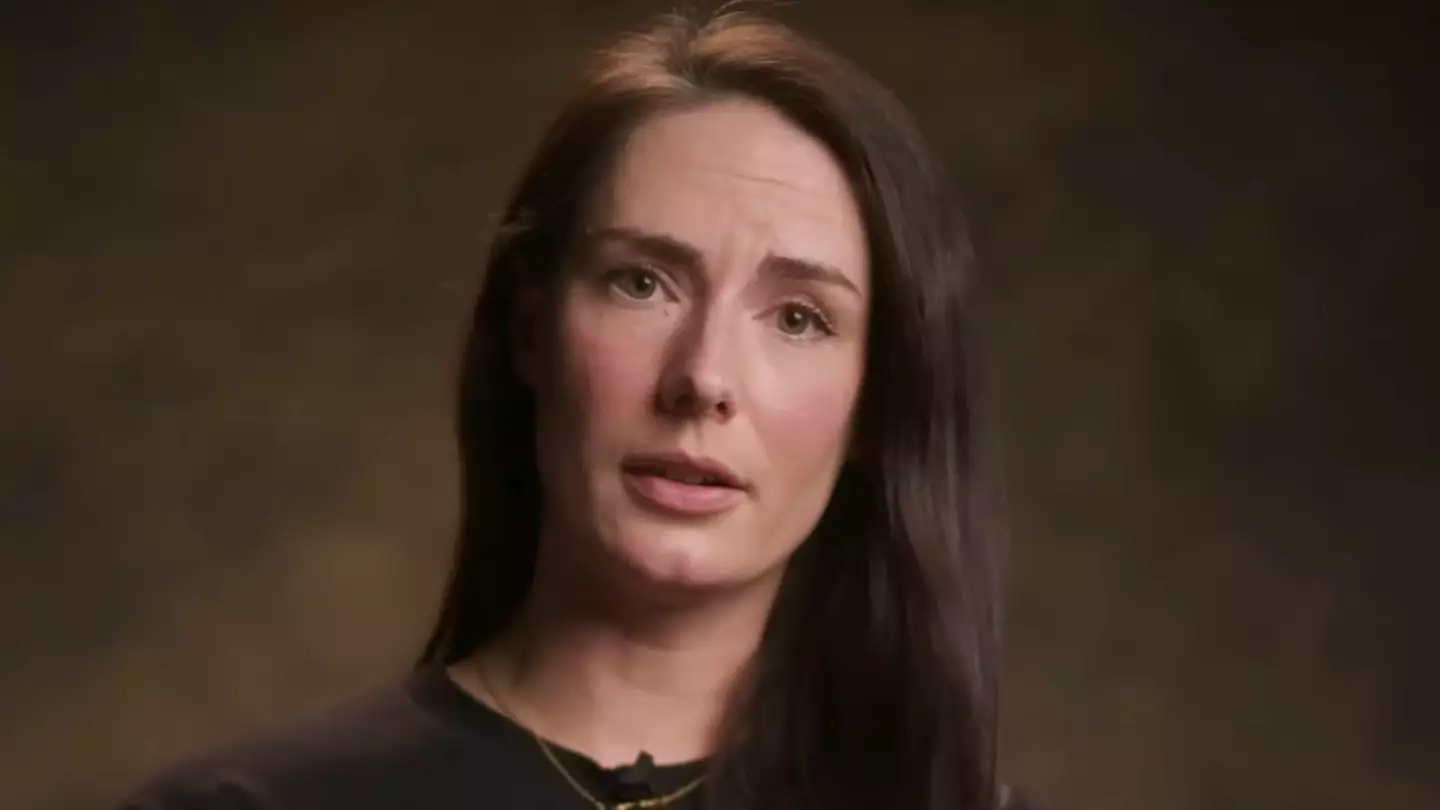

Published 16:20 3 Mar 2025 GMT
Prison officer reveals 'worst' thing about death row after USA visit and it's terrifying
Former UK prison officer Alex South visited the USA during her time working in some of the toughest high-security prisons on the planet
A former prison officer has revealed what she was told was the 'worst' thing about death row during a brutal visit to the United States of America.
Alex South used to work in some of the most brutal prisons in the United Kingdom. With 10 years of service under her belt at some of the toughest institutions in the country, Alex worked at HMP Whitemoor, HMP Wormwood Scrubs, and HMP Belmarsh as an officer, senior officer, and custodial manager.
Alex, who's also trained to be a riot commander and hostage negotiator, saw some pretty serious incidents during her career.
Now, sitting down with LADbible for our Minutes With series, Alex has revealed the creative ways in which prisoners hide drugs and phones while incarcerated, as well as the ongoing issue of dealing class A drugs and using food to make weapons to harm other prisoners with.
As well as that, Alex revealed what it was like when she visited America's infamous death row and how that influenced her leaving the prison service.
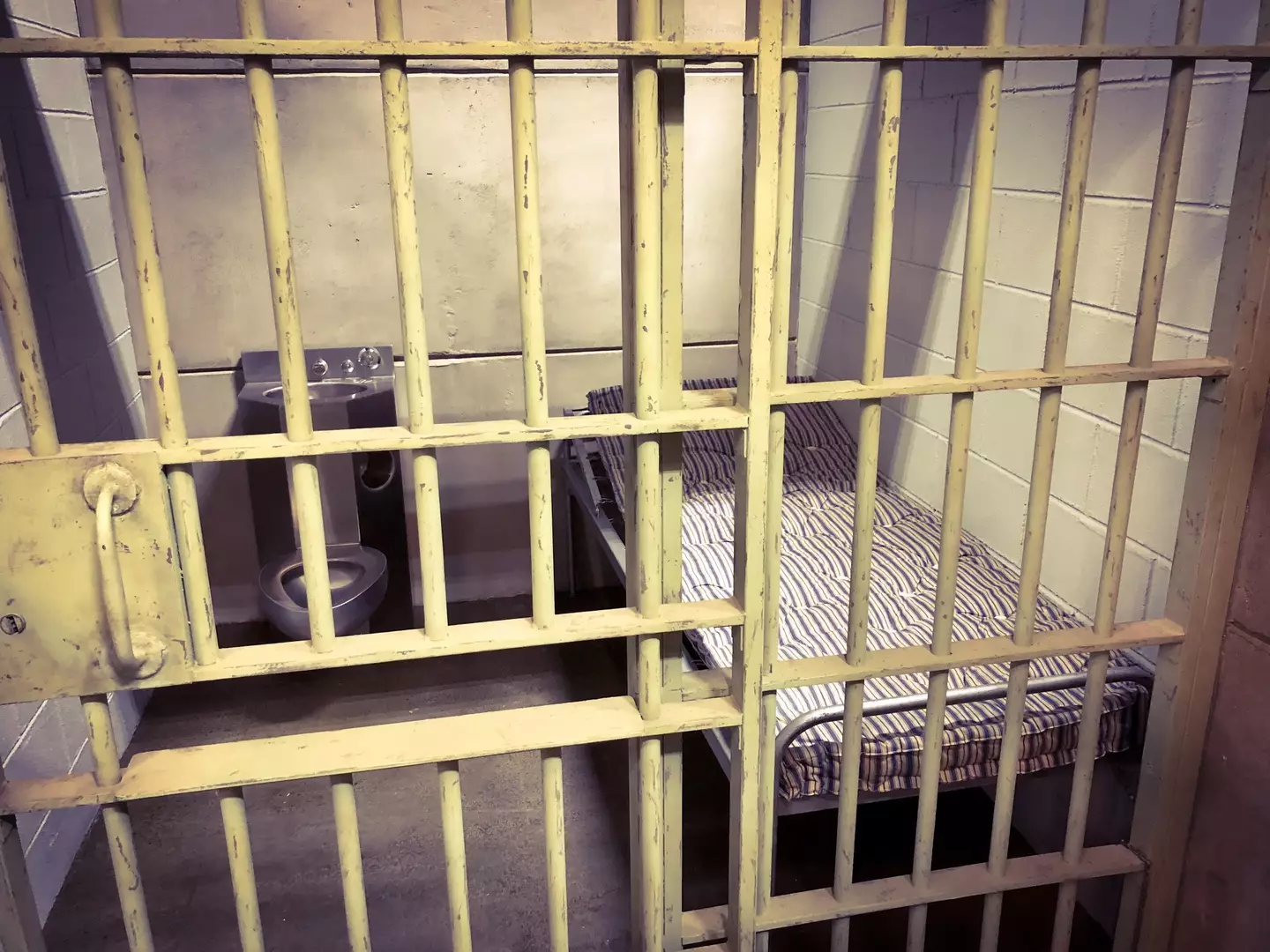

Death row is where inmates stay until they die, under US law (Getty Stock Images)
In particular, it was her asking American prison guards what the 'worst' thing about their job was that saw her call time on her career working in prisons.
"When I first joined the job at Whitemoor, there was an officer who sat down with me and he was giving me really good advice. He said things like, 'don't do too much overtime, always take your holiday, keep your friends outside, don't just make your social circle only officers'," Alex told LADbible.
"And he gave me really good advice; he said the job will change you. And I remember thinking, 'I don't think it has but you know, he knows what he's talking about'. And he told me that there was a time when he had been in the job a long time and he hadn't realised how much it had begun to affect him. And then he drove to work one day and he couldn't get out of the car and he said he couldn't make his legs work."
This came back to the forefront of Alex's mind when she visited death row in Texas, officially known as the Allan B. Polunsky Unit.
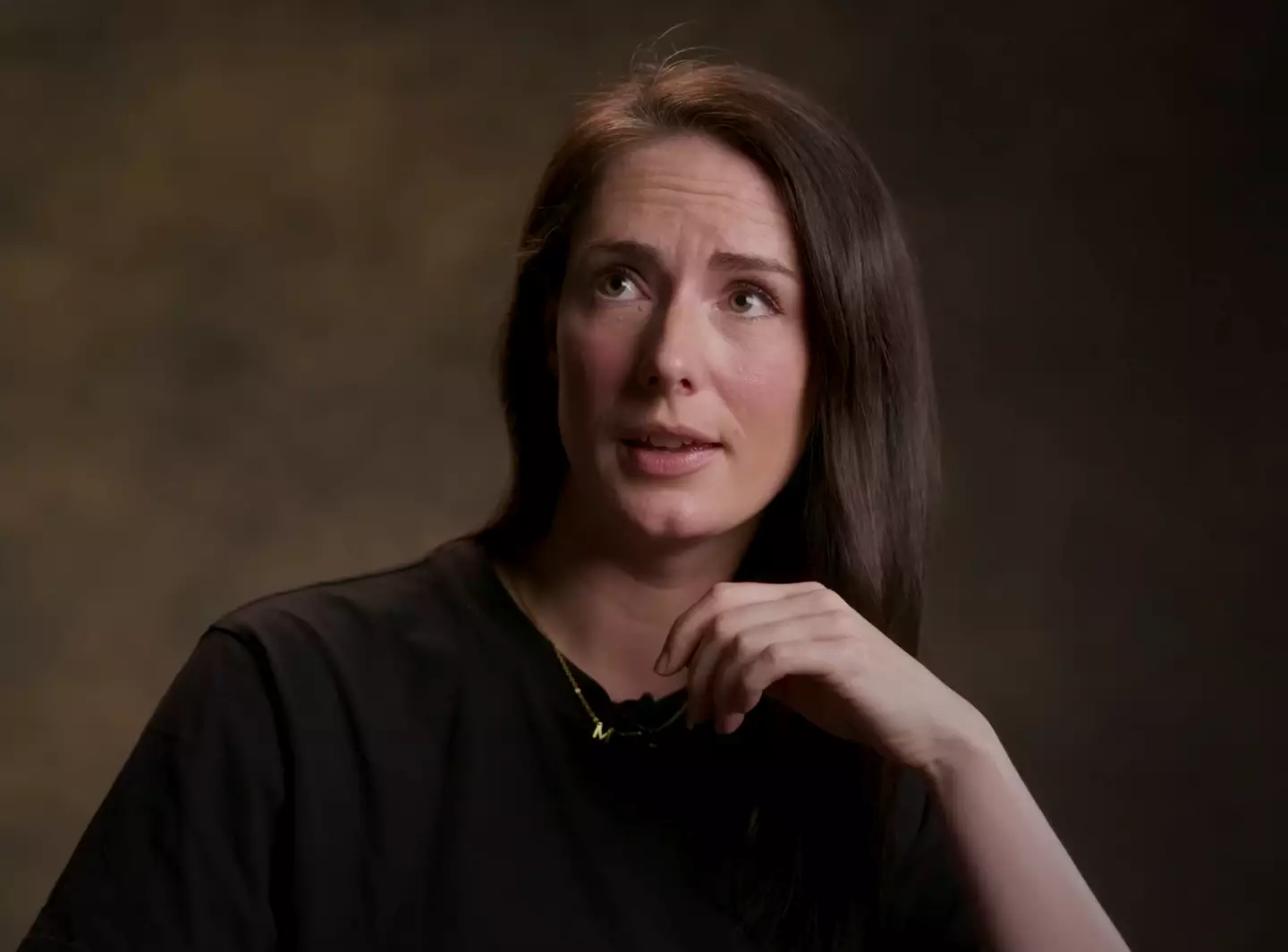

Alex South worked in prisons for a decade (LADbible)
She added: "One of the prisons we went to was death row, the Polunsky Unit. So we went on to the actual death row unit and then the death chamber itself," she said.
"And I was speaking to the correctional officers whose job it was to walk the condemned prisoner from their final cell to the death chamber. And I said, 'what's the hardest part of your job?'.
"I kind of thought I knew what they were going to say because it seems obvious. And I remember they said that you have three scenarios when you are walking those prisoners. And the first one is that they fight and you have to physically restrain them in order to get them to the gurney.
"The second one is when they're passive and they just walk. And they said the worst bit is the third scenario when they are apologetic, but they have to be carried because they say 'I can't make my legs work'. And I remembered that because obviously it mirrored what that officer had said."
For Alex, it was a situation that became all too close to home years later.
She explained: "I think I'd been at Belmarsh about three or four years and we'd had a couple of deaths, and instances that weren't more violent than others really, but it was obviously starting to have an impact on me.
"And I drove home, I lived in a nice little street in South London at the time and I pulled up outside my flat and I just stayed in the car for three hours. And it was cold, but I just stayed in the car. And I remember thinking 'I can't make my legs work'. I can't get in. So I think I'd been telling myself for a long time this will get better.
"Like, it will go back to what it used to be. I will feel safe, I will enjoy work again. I will have that energy and that rhythm and I'll feel productive.
"And then I just think that was my body's way of saying like, 'you have to go now, it's not going to change'. So I think that was the moment I realised it was time for me to finish."
Manson Family murderer Leslie Van Houten spent 53 years in prison for her part in the murder of a California grocer and his wife.
And when she was released from prison in 2023, she faced quite the consequence.
Aged 19 at the time of the killings, she was a member of Charles Manson’s infamous Manson Family cult and the youngest of them to be convicted of murder.
Van Houten was serving a life sentence for the two murders with five bids for her parole blocked by governors before the decision was later reversed and she was released at the age of 73.
Recreating death row inmate's last meal
In a number of parole hearings, she expressed her regret for both her part in the killings and her association with Manson.


Van Houten during a 2002 parole hearing (DAMIAN DOVARGANES/AFP via Getty Images)
Explaining how she let him overpower her ‘individual thinking’, she said in 2002: "I bought into it lock, stock and barrel. I took it at face value.”
Manson was convicted of nine murders in 1971, including the 1969 killing of Sharon Tate, who was pregnant at the time.
Just days after her murder, Van Houten joined cult followers in killing grocer Leno LaBianca and his wife Rosemary.
She held the woman down while another member stabbed her, admitting she stabbed her after she was dead.
When the 2020 rejection of her parole by Governor of California Gavin Newsom was reversed by a state appeals court, he said he would not fight the ruling granting her parole, but made it clear he was disappointed at her release.
And while it wasn’t exactly a match for being in prison, there was a consequence Van Houten had to face when she was released – the world she once knew had completely changed.


Manson Family murderers Susan Atkins, Patricia Krenwinkel and Leslie van Houton (Bettman/Getty Images)
She was transferred to spent about a year at a halfway house as her lawyer said the former cult member would need to learn how to navigate a whole new reality.
Her attorney Nancy Tetreault explained: “She has to learn to use the internet. She has to learn to buy things without cash.
“It's a very different world than when she went in."
The lawyer added at the time that Van Houten was ‘still trying to get used to the idea that this is real’.
While she served her sentence, Tetreault said the murderer ‘had a long job of detaching herself from the cult mentality and accepting responsibility’.
“It took her a long time. She had decades of therapy. So she felt guilt and deep remorse,” Tetreault added to the BBC.
Featured Image Credit: KTLA 5
Topics: Crime, US News, Prison
 Jess Battison
Jess Battison

Published 16:20 3 Mar 2025 GMT
Prison officer reveals 'worst' thing about death row after USA visit and it's terrifying
Former UK prison officer Alex South visited the USA during her time working in some of the toughest high-security prisons on the planet
A former prison officer has revealed what she was told was the 'worst' thing about death row during a brutal visit to the United States of America.
Alex South used to work in some of the most brutal prisons in the United Kingdom. With 10 years of service under her belt at some of the toughest institutions in the country, Alex worked at HMP Whitemoor, HMP Wormwood Scrubs, and HMP Belmarsh as an officer, senior officer, and custodial manager.
Alex, who's also trained to be a riot commander and hostage negotiator, saw some pretty serious incidents during her career.
Now, sitting down with LADbible for our Minutes With series, Alex has revealed the creative ways in which prisoners hide drugs and phones while incarcerated, as well as the ongoing issue of dealing class A drugs and using food to make weapons to harm other prisoners with.
As well as that, Alex revealed what it was like when she visited America's infamous death row and how that influenced her leaving the prison service.


Death row is where inmates stay until they die, under US law (Getty Stock Images)
In particular, it was her asking American prison guards what the 'worst' thing about their job was that saw her call time on her career working in prisons.
"When I first joined the job at Whitemoor, there was an officer who sat down with me and he was giving me really good advice. He said things like, 'don't do too much overtime, always take your holiday, keep your friends outside, don't just make your social circle only officers'," Alex told LADbible.
"And he gave me really good advice; he said the job will change you. And I remember thinking, 'I don't think it has but you know, he knows what he's talking about'. And he told me that there was a time when he had been in the job a long time and he hadn't realised how much it had begun to affect him. And then he drove to work one day and he couldn't get out of the car and he said he couldn't make his legs work."
This came back to the forefront of Alex's mind when she visited death row in Texas, officially known as the Allan B. Polunsky Unit.


Alex South worked in prisons for a decade (LADbible)
She added: "One of the prisons we went to was death row, the Polunsky Unit. So we went on to the actual death row unit and then the death chamber itself," she said.
"And I was speaking to the correctional officers whose job it was to walk the condemned prisoner from their final cell to the death chamber. And I said, 'what's the hardest part of your job?'.
"I kind of thought I knew what they were going to say because it seems obvious. And I remember they said that you have three scenarios when you are walking those prisoners. And the first one is that they fight and you have to physically restrain them in order to get them to the gurney.
"The second one is when they're passive and they just walk. And they said the worst bit is the third scenario when they are apologetic, but they have to be carried because they say 'I can't make my legs work'. And I remembered that because obviously it mirrored what that officer had said."
For Alex, it was a situation that became all too close to home years later.
She explained: "I think I'd been at Belmarsh about three or four years and we'd had a couple of deaths, and instances that weren't more violent than others really, but it was obviously starting to have an impact on me.
"And I drove home, I lived in a nice little street in South London at the time and I pulled up outside my flat and I just stayed in the car for three hours. And it was cold, but I just stayed in the car. And I remember thinking 'I can't make my legs work'. I can't get in. So I think I'd been telling myself for a long time this will get better.
"Like, it will go back to what it used to be. I will feel safe, I will enjoy work again. I will have that energy and that rhythm and I'll feel productive.
"And then I just think that was my body's way of saying like, 'you have to go now, it's not going to change'. So I think that was the moment I realised it was time for me to finish."


إرسال تعليق